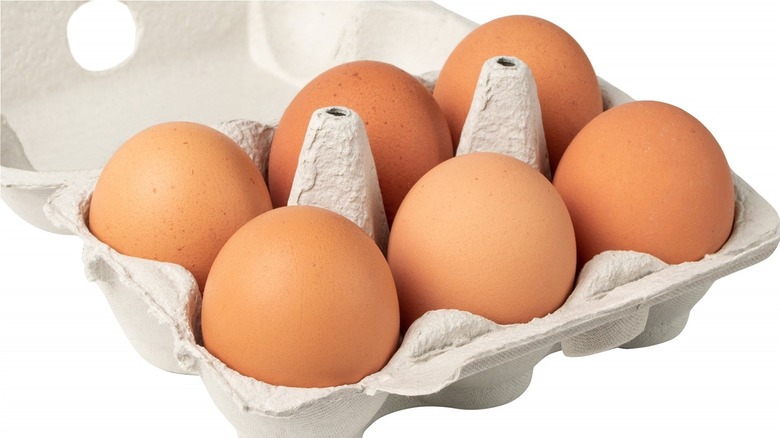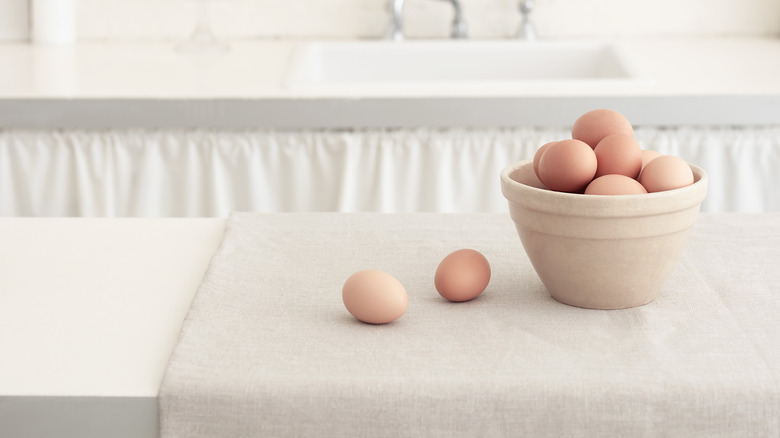Why You Should Be Baking With Room Temperature Eggs
Everyone from amateur bakers to major celebrities insists that baking is better when eggs are at room temperature. Why?
Eggs have emulsifying magic that you want spreading evenly through your baking ingredients, says Sweets & Thank You. That makes a big difference to any dessert's fluffiness, volume, and texture. A room-temperature egg, technically 68-70 degrees Fahrenheit, is better at working through ingredients rather than clumping them up as cold eggs can do. A chilly egg can produce desserts that fail to rise or are too dense.
Not to mention, a cold egg can "seize up" the other ingredients that you want to keep soft, like butter, says legendary baker Duff Goldman. He suggests we set eggs out the night before for better baking the next day. Paying special attention to eggs in our baking is so critical, Goldman dedicated an entire episode of his Happy Fun Bake Time kids' baking show to the importance an egg makes in producing a good cake.
Goldman's Food Network colleague Ina Garten also believes in room-temperature eggs. In a video showcasing her "barn" (the luxe kitchen where she tapes her Food Network shows), Garten points out that she leaves a bowl of eggs on her counter alongside other room-temperature staples like garlic cloves and lemons (via Showbiz CheatSheet).
That's great for professional planners, but for those of us who forget and need a room-temperature egg fast, here are a few tips.
How to get an egg to room temperature quickly
While baking is an exact science, getting eggs to room temperature quickly is a little less by the book. One hack is to simply put your cold eggs in a bowl large enough to fully submerge them in warm water until they have lost their chill.
If you are looking for more precision, take a stainless steel bowl, says Good Life Eats, crack your eggs in the bowl then set the whole bowl in warm water. Be sure to stick with stainless steel since it will cool quickly when you take it out of the warm water, compared to a glass bowl that can hold heat longer and will keep warming your eggs after you've already deemed them to be room temp.
You can stir your eggs during the minutes that you have them in your warming bowl. Check your recipe in case it calls for separated eggs, which you will want to do before bringing them to room temperature while they are still cold and the yolks are firm.
Interestingly, in Europe, eggs are stored at room temperature because, according to ALOR Italy, chickens are vaccinated against salmonella in Europe, but not in America. Because of that, eggs in the United States are washed before they hit the shelves. That washes away the egg "cuticle," so into the refrigerator they must go to protect them from bacteria. Getting them back to room temperature before baking, though, will be worth your while.

